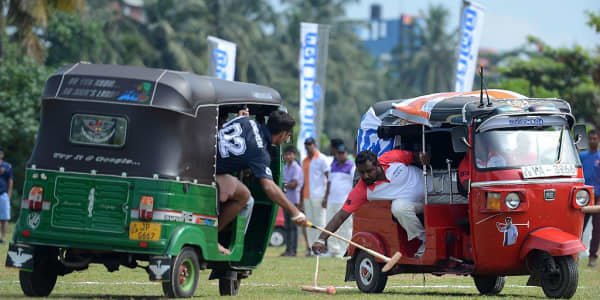Sri Lanka's new government is carrying out a "mop-up" operation after the last administration left the small Asian country in a "debt-trap," the country's finance minister told CNBC Tuesday.
Speaking from Frankfurt at the Asian Development Bank Conference, Ravi Karunanayake told CNBC that the new government's "biggest problem is from the brought-forward, we're taking stock of what's on. We're basically unearthing what's been off-balance sheet items that have today become a contingent liability and bring that into books."
The Sri Lankan government put on hold several Chinese infrastructure projects : "We were questioning one or two items because a clean government needs to tell the people what it was – but all of those projects are back in full operation. It's a win-win go forward."
Sri Lanka received a $1.5 billion loan from the International Monetary Fund on Friday, which Krystal Tan, an Asia economist at Capital Economics, said in a note over the weekend, "without an IMF loan, Sri Lanka would have been in a precarious position," noting that foreign exchange reserves only covered around 80 percent of short-term external debt.
"Just because we are able to tell the world, 'this is what we inherited,' this does not mean you can just write it off," said Karunanayake, on the country's huge debt.
Credit rating company Moody's Investors Service, in a report before the IMF deal, stated that general government debt was around 76 percent of gross domestic product (GDP) in 2015, up 71.6 percent from five years earlier.
Karunanayake said the government is trying to make the changes "without having an impact on the people, because the people have been impoverished for long enough – that's why they changed the government."
The sharp drop in oil prices also hit the country hard. Remittances from Sri Lankan overseas workers in oil-producing Gulf Cooperation Council (GCC) countries account for around 9 percent of the country's GDP, Moody's noted.





